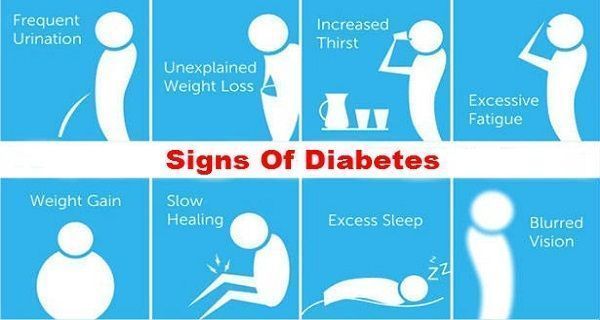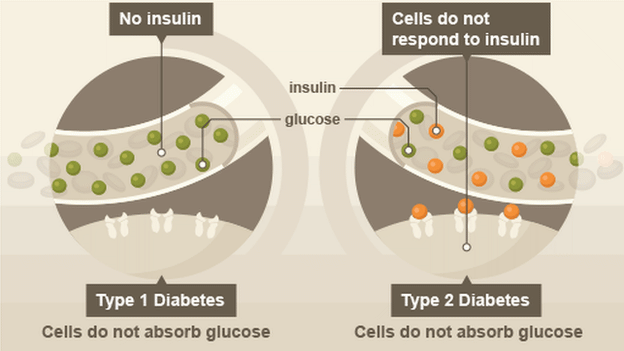
What is Diabetes? Symptoms & Home Remedies For Diabetes
diabetes causes, diabetes treatment, diabetes level, diabetes symptoms, diabetes prevention, diabetes types
Diabetes is a common problem nowadays. It is one of the prevailing diseased affecting individual form young age. We need better understanding about this disorder to fight it better.
Diabetes refers to a group of diseases that affect how your body uses sugar. Glucose is essential to your health because it’s an important source of energy for the cells that make up your muscles and tissues. It’s also source of fuel for your brain.
Symptoms :
Diabetes symptoms depend upon levels of blood sugar. Issue is few people, with prediabetes or type 2 diabetes, may experience minimal symptoms or no symptoms at all, making it difficult to diagnose in early stages. In contrast type 1 diabetes symptoms are more severe & experienced from initially.
Some of the common signs and symptoms of type 1 and type 2 diabetes are as follows:
- Increased frequency of micturition (urination)
- Increased thirst
- Unexplained weight gain
- Increased hunger/appetite
- Ketonuria
- Irritability
- Fatigue
- Vision problems like blurring
- Delayed wound healing
- Repeated infection

The less common Type 1 diabetes, can develop at any age, though it often starts during childhood or adolescence.
The more common Type 2 diabetes, can present at any age but seen more frequently in age more than 40.
Diagnosis :
Symptoms of type 1 diabetes develop suddenly and are generally the reason for checking blood sugar levels.
As symptoms of other types of diabetes and prediabetes develop slowly or are not seen in initial stages, the American Diabetes Association (ADA) recommends following screening guideline for diabetes:
Anyone with a BMI (body mass index) higher than 25 regardless of age, who has additional risk factors, such as raised blood pressure, raised cholesterol levels, a sedentary lifestyle, a history of polycystic ovarian syndrome (PCOS) or known heart disease, and having a close family member with diabetes.

Anyone older than age 45 should undergo initial blood sugar screening, and then, if the results are normal, screening should be done at three years interval.
Any woman with history of gestational diabetes during pregnancy, should be screened for diabetes every three years.Anyone who has been diagnosed with prediabetes should undergo testing every year.
Lifestyle modification & home remedies :
Diabetes is a serious disease if unchecked. Your diabetes treatment is a full-time commitment. Careful & timely management of diabetes can reduce risk of serious — even life-threatening — complications.
It is your commitment to manage your diabetes. Learn & read about diabetes. Ask your doctor for help when you need it.
Choose healthy foods and maintain a optimum weight within range for your age & height. Losing just 5% of your body weight can make a difference in your sugar control if you have type 2 diabetes.

Physical activity should be important part of your daily routine. Regular exercise can help prevent type 2 diabetes. It also helps in controlling blood sugar levels in those who already have diabetes. Minimum 30 minutes of moderate exercise (such as brisk walk) is recommended.
Combination of exercises — aerobic exercises, such as walking or dancing on most days, with resistance training, such as weightlifting or yoga — often helps control blood sugar more effectively than doing any exercise alone.
You should reduce your sitting time. Try to get up and move around at least every 30 minutes or so when you’re awake.
Lifestyle for type 1 and type 2 diabetes:
Wear an identification tag or bracelet that says you have diabetes. Keep a glucagon kit nearby in case of a low blood sugar emergency — and make sure your friends and family know how to use it.
Undergo yearly ophthalmic checkups. Your regular diabetes checkups are not complete without eye checkup & physical checkup. Physical check-up with allow your doctor to look for any diabetes-related complications and screen for other medical problems. Your ophthalmologist will check for signs of diabetic retinopathy & other issues.
Get your vaccines on time. High blood sugar may weaken your immune system. Get a flu vaccine every year, and your doctor may recommend the pneumonia vaccine, as well. The Centers for Disease Control (CDC) and Prevention also currently recommends hepatitis B vaccination.

The most recent CDC guidelines advise vaccination as soon as possible after diagnosis with type 1 or type 2 diabetes. If you are age 60 or older, and haven’t previously received the vaccine, talk to your doctor about the same.
Pay attention to your legs & foot, particularly soles. Wash your feet daily in lukewarm water. Dry them gently, especially between the toes. Moisturize with lotion, but not between the toes. Check your feet daily for cuts, sores, redness, blisters or swelling. Consult your doctor if you have foot problem that doesn’t heal promptly on its own.
Keep a track of blood pressure and cholesterol levels. Exercising regularly and eating healthy foods can go a long way toward controlling high blood pressure and cholesterol. Medication if needed should be taken only after consultation with doctor.
Take care of your teeth. Diabetes causes to more-serious gum infections. Brush and floss your teeth twice a day at least. Undergo regular dental exams. Consult a dentist right away if your gums bleed or look red or swollen.
If you smoke or use other types of tobacco, quit immediately. Smoking increases your risk of various diabetes complications. Smokers who have diabetes are more likely to die of cardiovascular disease than are nonsmokers who have diabetes, according to the American Diabetes Association. Talk to your doctor about ways to stop smoking or using tobacco products.
If you drink alcohol, kindly stop it. Alcohol can cause either high or low, depending on how much you drink and if you eat at the same time. Check your blood sugar levels before going to bed.
Take stress seriously. The hormones your body may produce in response to prolonged stress may prevent insulin from working properly, which will raise blood sugar levels and stress you even more. Set limits for yourself and prioritize your tasks. Learn relaxation techniques. And get plenty of sleep.